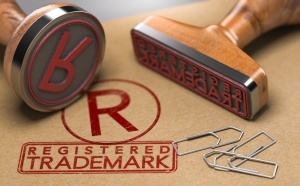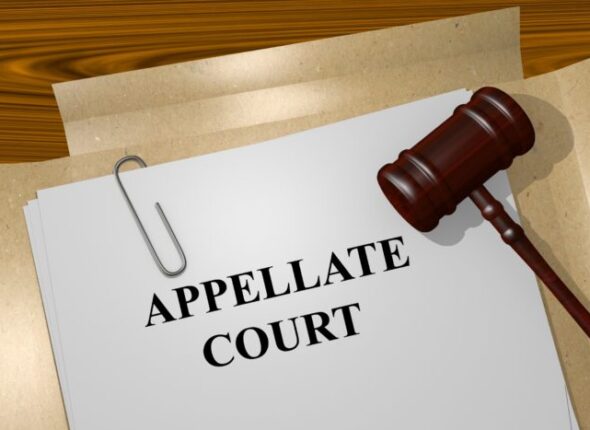Pennsylvania CLE | PA CLE | Choose Your Plan | Search for a Course

PA CLE REQUIREMENTS:
The Pennsylvania Continuing Legal Education (MCLE) Board requires most active attorneys to complete 12 CLE credit hours every year, including at least 2 hours in ethics, professionalism, or substance-abuse awareness. Credits must be reported by the end of the attorney’s annual compliance period. Pennsylvania permits attorneys to earn all or most of their credits through approved online or live-webcast courses, giving busy practitioners the flexibility to meet obligations without disrupting their practices.
How to Obtain CLE for a Knowledge Group Course in Pennsylvania:
To earn CLE credit with The Knowledge Group, complete the video courses, answer the secret word questions, download and retain your Certificate of Attendance.
Attendance Reporting Procedure:
The Knowledge Group submits attendance reports to Pennsylvania Bar.
Additional Resources: The Knowledge Group Comprehensive CLE Rules Page or contact CLE support.
Pennsylvania PA CLE (MCLE) | Search for Single Courses
FINRA Arbitration Enforcement Trends | On-Demand Webinar
Rebecca Beers Partner | RumbergerKirk Debra A. Jenks, Esq. Partner | Debra...
Global Trademark IP Rights | On-Demand Webinar
Steven Weigler Founder | EmergeCounsel Steven D. Lustig Counsel | Panitch Schwarze...
Trade Secret IP: Trends & Challenges | On-Demand Webinar
John A. Stone Partner | Nationally Recognized Attorney and Expert in Trade...
R&D Tax Credits: Key Updates & Tips | On-Demand Webinar
Michael Silvio, CPA Tax Partner | Recognized Leader in the Federal Credits...
Accounting Ethics Critical Guide | On-Demand Webinar
Judy L. Woods Of Counsel | Krieg DeVault LLP Marc Y. Tassé,...
Appellate Practice: A Complete Guide | On-Demand Webinar
Glenn Danas Partner | Certified Appellate Law Specialist by the California Board...
Antitrust: Balancing Competition & Innovation | On-Demand Webinar
David Shotlander Partner | Haug Partners LLP Carol Xianxiao Liu Associate |...
White Collar Fraud: New Supreme Court Rules | On-Demand Webinar
Vince Farhat Partner, Chair of the White Collar Defense & Investigations Group...
Crypto Ecosystem: Risks & Markets | On-Demand Webinar
Simona Mola Principal | Economic Consultant Former SEC Assistant Director and Senior...
Meeting PA CLE Requirements: A Practical Guide for Pennsylvania Attorneys
Continuing Legal Education (CLE) is essential for Pennsylvania attorneys who want to remain compliant with the rules of professional conduct and stay current on new laws, technology, and ethics requirements. The PA CLE system offers both structure and flexibility, allowing lawyers to integrate education into their ongoing practices.
Understanding Pennsylvania’s CLE Rules
The PA CLE Board requires most active lawyers to earn 12 CLE credit hours every year. Out of these, at least 2 credits must focus on ethics, professionalism, or substance-abuse awareness.
Attorneys are assigned an annual compliance deadline (typically April, August, or December, depending on their group assignment). Failure to meet these requirements by the deadline can result in late fees, non-compliance notices, and potential administrative suspension.
Understanding your compliance group and tracking your hours throughout the year is critical to avoiding last-minute issues.
Flexibility Through Online PA CLE
In recent years, the PA CLE Board has expanded the range of online learning options. Attorneys may now complete all required credits through accredited on-demand or live-webcast courses.
This flexibility is especially valuable for lawyers with demanding schedules, as it eliminates the need to travel to in-person seminars. Online programs allow attorneys to log in from anywhere—whether in the office, at home, or on the go—and learn at their own pace. Many platforms also offer automatic credit tracking and certificates of completion to simplify reporting.
Selecting a Qualified Provider
Not all CLE providers are equal. Attorneys should confirm that their chosen provider is approved by the PA CLE Board to ensure credits are accepted toward compliance.
Trusted providers such as The Knowledge Group offer a broad catalog of Pennsylvania-approved programs, including ethics, technology, litigation updates, and practice-specific topics. Using a single provider for most or all credits simplifies tracking and reduces administrative effort.
High-Value Topics for Pennsylvania Attorneys
Pennsylvania practitioners often encounter unique regional or practice-area challenges. Popular PA CLE courses include:
Ethics and Professionalism: Meeting mandatory requirements while addressing current issues such as conflicts of interest and client confidentiality.
Technology and Law Practice: Covering cybersecurity, data privacy, and the responsible use of AI tools.
Trial Practice and Evidence: Offering updates on Pennsylvania Rules of Civil and Criminal Procedure.
Substance-Abuse Awareness and Attorney Wellness: Promoting resilience and well-being in the profession.
Emerging Legal Trends: Including changes in commercial law, environmental regulations, and labor & employment.
These topics not only help attorneys meet their CLE obligations but also enhance their ability to serve clients effectively.
Practical Tips for Compliance
Meeting PA CLE requirements can be straightforward with good planning. Here are some practical tips:
Know Your Compliance Group: Track your annual deadline (April, August, or December).
Start Early: Spread out CLE learning throughout the year instead of rushing in the final months.
Leverage Online Programs: Use approved web-based platforms to study on your own schedule.
Prioritize Required Categories: Ensure you complete at least 2 hours of ethics/professionalism each year.
Keep Proof of Completion: Maintain certificates in case of an audit or technical issues.
The Future of PA CLE
The legal profession is rapidly evolving. Topics like cybersecurity, remote litigation, diversity, equity & inclusion (DEI), and AI in legal practice are increasingly featured in PA CLE programs.
Online learning is likely to remain a dominant mode for continuing education due to its convenience and adaptability. Attorneys can expect more interactive formats—such as live polls, breakout sessions, and real-time Q&A—that improve engagement and enhance the learning experience.
Conclusion
For Pennsylvania attorneys, compliance with PA CLE rules is both a professional duty and an opportunity to grow in skill and knowledge. By leveraging online accredited programs and planning ahead, lawyers can meet the 12-credit annual requirement without unnecessary stress.
Investing in high-quality CLE is not just about avoiding penalties—it’s about staying competitive, ethical, and effective in a complex and fast-changing legal environment.












